Featured
Coronavirus will cost global tourism at least $1.2 trillion, UN agency warns

The world’s tourism sector could lose at least $1.2 trillion, or 1.5 per cent of the global gross domestic product (GDP), having been placed at a standstill for nearly four months due to the coronavirus pandemic, according to a report Wednesday from the United Nations Conference on Trade and Development.
The UNCTAD warned that the loss could rise to $2.2 trillion or 2.8 per cent of the world’s GDP if the break in international tourism lasts for eight months, in line with the expected decline in tourism as projected by the UN World Tourism Organisation (UNWTO).
UNCTAD estimates losses in the most pessimistic scenario, a 12-month break in international tourism, at $3.3 trillion or 4.2 per cent of global GDP.
Tourism is a backbone of many countries’ economies and a lifeline for millions of people around the world, having more than tripled in value from $490 billion to $1.6 trillion in the last 20 years, according to UNWTO.
But Covid-19 has brought it to a halt, causing severe economic consequences globally.
Prevailing lockdown measures in some countries, travel restrictions, reductions in consumers’ disposable income and low confidence levels could significantly slow down the sector’s recovery.
Even as tourism slowly restarts in an increasing number of countries, it remains at a standstill in many nations.
“These numbers are a clear reminder of something we often seem to forget: the economic importance of the sector and its role as a lifeline for millions of people all around the world,” UNCTAD’s director of international trade Pamela Coke-Hamilton was quoted in a statement, as saying.
“For many countries, like the small island developing states, a collapse in tourism means a collapse in their development prospects. This is not something we can afford.”
Developing countries could suffer the steepest GDP losses.
Jamaica and Thailand stand out, losing 11 per cent and 9 per cent of GDP respectively in the most optimistic scenario of UNCTAD’s estimates. Other tourism hotspots such as Kenya, Egypt and Malaysia could lose over three per cent of their GDP.
But the tourism sector in many rich nations will also feel the squeeze.
Popular European and North American destinations, including France, Greece, Italy, Portugal, Spain and the United States could lose billions of dollars due to the dramatic drop in international tourism, according to UNCTAD forecasts.

Impact on other sectors, jobs and wages
Travel and tourism account for a significant share of global GDP and more than half of many countries’ national income.
Coronavirus-induced losses in tourism have a knock-on effect on other economic sectors that supply the goods and services travellers seek while on vacation, such as food, beverages and entertainment.
UNCTAD estimates that for every $1 million lost in international tourism revenue, a country’s national income could decline by $2 million to $3 million.
The massive fall in tourist arrivals has also left a growing number of skilled and unskilled workers unemployed or with less income.
UNCTAD estimates show that in the worst-affected countries, such as Thailand, Jamaica and Croatia, employment for unskilled workers could decrease at double-digit rates even in the most moderate scenario.
In the case of wages for skilled workers, the steepest drops could be seen in Thailand (-12 per cent), Jamaica (-11 per cent) and Croatia (-nine per cent), in the optimistic case, doubling or tripling in the worst scenario.
The effects could be particularly negative for women, who are expected to be disproportionately affected by layoffs in tourism due to Covid-19, according to the report.
Women are more likely than men to be entrepreneurs in tourism and make up about 54 per cent of the workers in the accommodation and food services sectors.
And because many women in the sector work informally in low-skilled jobs, they are less likely to have unemployment benefits or other safety nets.
“This is why women are particularly hard hit in this crisis. And this is why policies that help protect the sector also protect the economic empowerment that many of these women have long fought for,” Coke-Hamilton said.


Maldives continues to suffer
The UNCTAD report shows that inbound tourism accounts for 58 per cent of the Maldives GDP.
The report, however, does not specify the impact of Covid-19 on Maldives tourism and its economy.
The coronavirus outbreak has hit the Maldivian economy hard, as travel restrictions and other preventive measures affect the country’s lucrative tourism industry, which contributes the bulk of the island nation’s state revenue and foreign reserves.
Before the pandemic, the government had been bullish about tourism prospects, targeting two million, high-spending holidaymakers this year after last year’s record 1.7 million.
However, only 382,760 tourists visited the Maldives before the country closed its borders on March 27. It was a 40.8 per cent decline over the 646,092 that visited the Maldives from January to March last year.
With arrival numbers falling, several resorts across the Maldives suspended operations.
Tourism has been the bedrock of the Maldives’ economic success. The $5 billion-dollar economy grew by 6.7 per cent in 2018 with tourism generating 60 per cent of foreign income.
However, the government is at present projecting a possible 13 per cent economic contraction this year — an estimated $778 million hit.
On March 8, Maldives reported its first cases of the novel coronavirus, as two hotel employees tested positive for Covid-19 at a luxury resort in the archipelago.
Eighteen more cases — all foreigners working or staying resorts and liveaboard vessels except five Maldivians who had returned from abroad — were later identified.
A six-case cluster of locals, detected in capital Male on April 15, confirmed community transmission of the coronavirus. Several more clusters have since been identified, bringing the total number of confirmed case in the Maldives to 2,382.
Ten deaths have been reported and 1,954 have made full recoveries.
The Maldives announced a state of public health emergency on March 12, the first such declaration under a recent public health protection law.
The public health emergency declaration allowed the government to introduce a series of unprecedented restrictive and social distancing measures, including stay-at-home orders in capital Male and its suburbs, a ban on inter-island transport and public gatherings across the country, and a nationwide closing of government offices, schools, colleges and universities.
Non-essential services and public places in the capital such as gyms, cinemas and parks were also shut.
Restaurants and cafes in the capital were asked to stop dine-in service and switch to takeaway and delivery.
A nationwide shutdown of all guesthouses, city hotels and spa facilities located on inhabited islands was also ordered.
These measures allowed authorities to contain the outbreak.
The restrictions are now being eased in phases, with the third phase kicking in from Wednesday.
The Maldives is also preparing to reopen its borders on July 15.
Recovery support needed
UNCTAD calls for strengthened social protection in the affected nations to prevent the worst economic hardship for people and communities that depend on tourism.
It urges governments to protect workers. Where some enterprises are unlikely to recover, wage subsidies should be designed to help workers move to new industries.
Governments should also assist tourism enterprises facing the risk of bankruptcy, such as hotels and airlines. One approach for financial relief is low-interest loans or grants, the report states.
In addition, UNCTAD calls on the international community to support access to funding for the hardest-hit countries.
Cover photo: Mihaaru News
Awards
Constance Halaveli and Constance Moofushi earn top scores in 2026 Booking.com awards
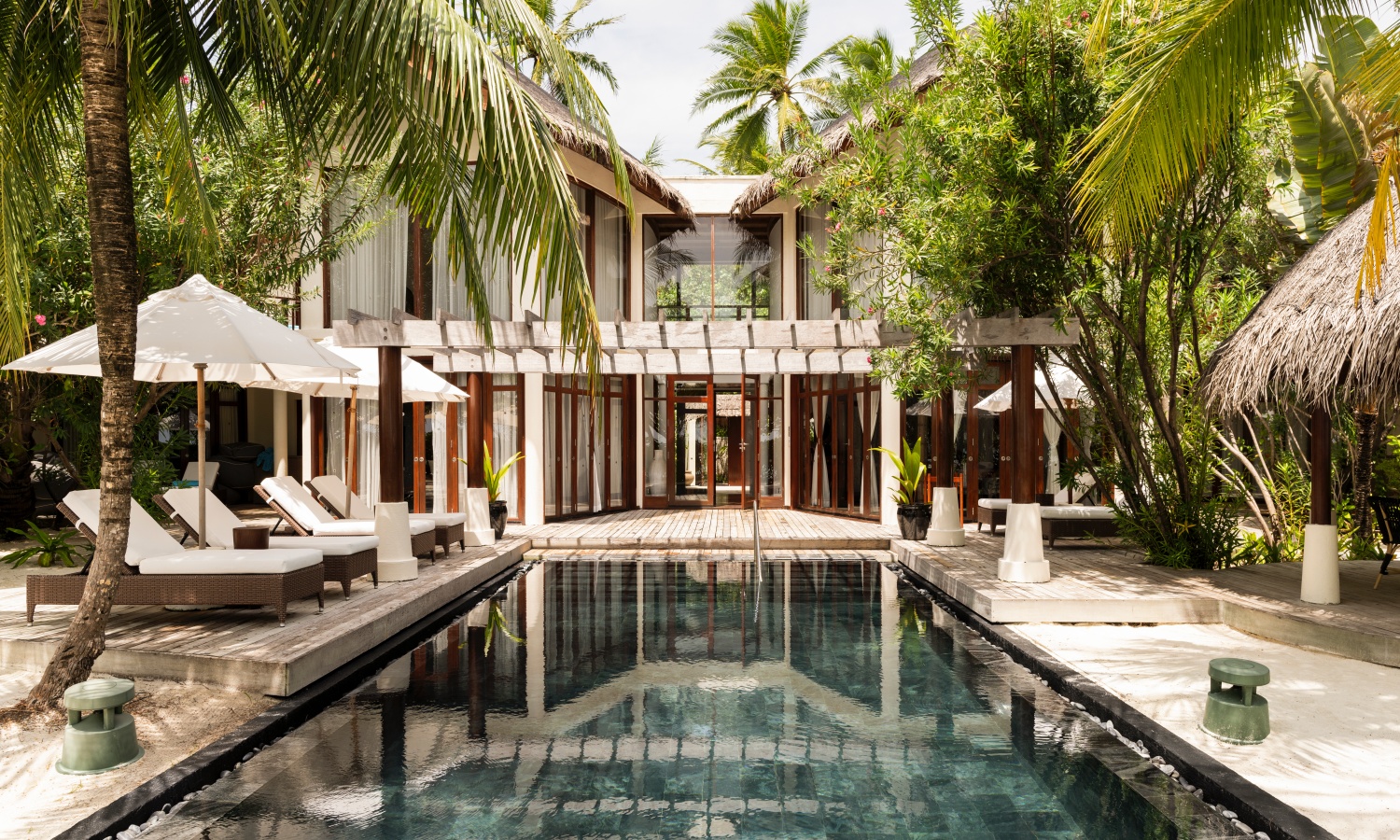
Constance Hospitality has been recognised in the 2026 Traveller Review Awards by Booking.com, with its Maldivian resorts achieving some of the highest scores within the group’s portfolio.
In the Maldives, Constance Halaveli Maldives received an outstanding score of 9.8 out of 10, while Constance Moofushi Maldives achieved 9.7. The ratings, based on verified guest reviews, reflect consistently high levels of guest satisfaction and service delivery.
Constance Halaveli Maldives, known for its spacious overwater and beachfront villas, personalised service and refined dining concepts, continues to perform strongly among travellers. Constance Moofushi Maldives, positioned as a barefoot chic resort with an all-inclusive concept, also maintains a high guest approval rating, supported by its diving experiences and relaxed island atmosphere.
While the wider Constance portfolio across the Indian Ocean was recognised, the Maldives properties stand out as the group’s highest-rated resorts in the 2026 awards cycle.
Commenting on the recognition, Jean-Jacques Vallet, Chief Executive Officer of Constance Hospitality, stated that the awards reflect the professionalism and commitment of the teams on the ground. He added that guest feedback remains central to maintaining service standards and delivering consistent experiences across the group’s destinations.
The recognition reinforces the position of Constance Halaveli Maldives and Constance Moofushi Maldives as leading performers within the Maldives’ competitive luxury hospitality sector.
Featured
Year of the Horse celebrations across Sun Siyam’s Luxury, Privé and Lifestyle resorts
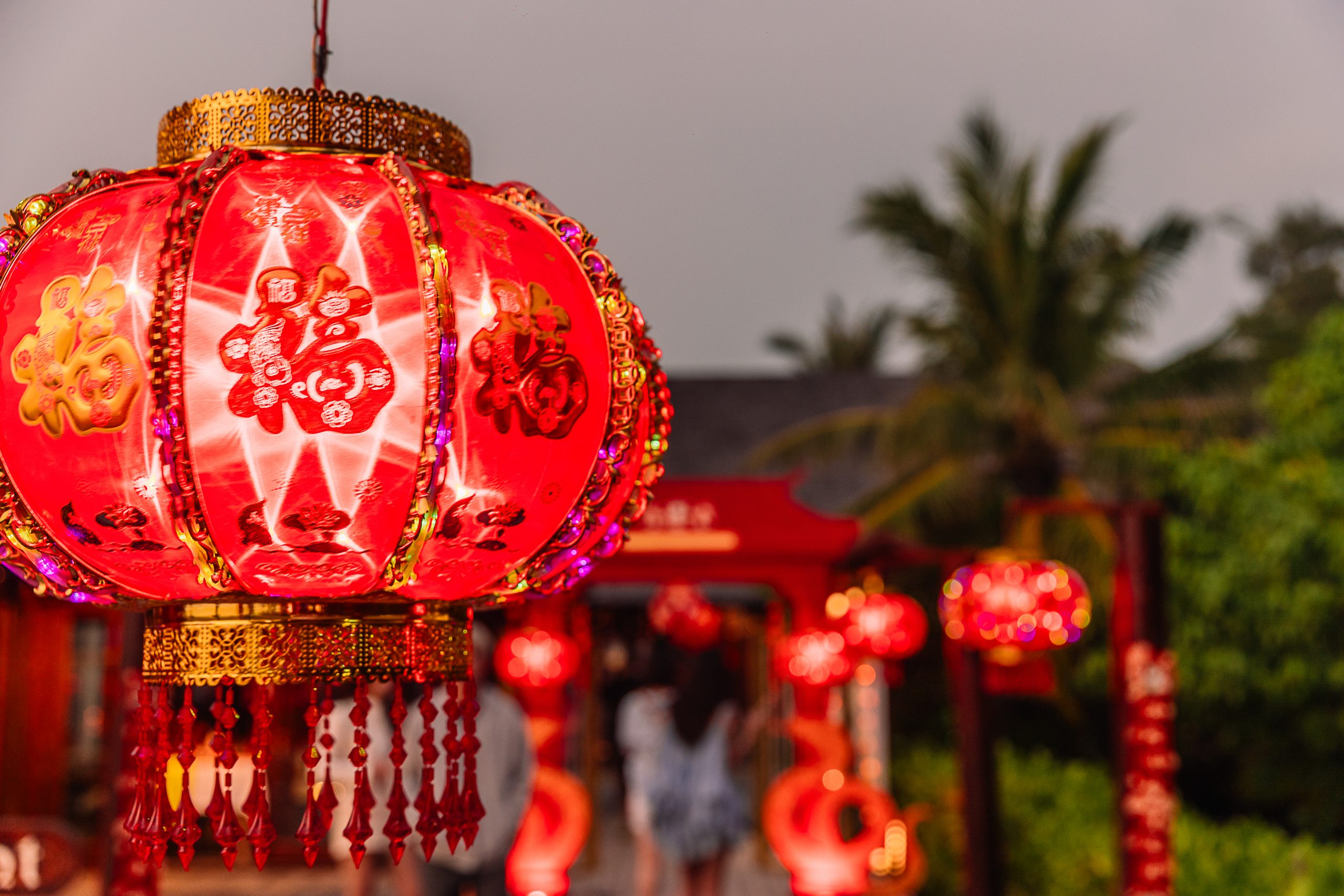
Sun Siyam Resorts is marking the Lunar New Year across its Luxury, Privé and Lifestyle collections with a coordinated programme of cultural experiences, festive dining, music and family-focused activities from 15 to 20 February 2026. Celebrating the Year of the Horse, each resort’s programme reflects its individual character while embracing the spirit of renewal and togetherness associated with the season.
Siyam World – Lifestyle Collection
At Siyam World, Lunar New Year celebrations combine cultural heritage with contemporary island energy. A highlight of the programme is a live showcase featuring Chinese-inspired DJ sets paired with the traditional guzheng, creating a fusion of electronic rhythms and classical melody. Performances by the Chaozhou Shantou lion dance troupe add further cultural depth, with guests invited to observe, participate and learn traditional movements.
Sun Siyam Olhuveli – Lifestyle Collection
Sun Siyam Olhuveli is presenting a relaxed Lunar New Year programme shaped by traditional symbolism and island living. Throughout the week, the resort will host family-friendly cultural activities, traditional performances and live music. Red-themed décor and festive elements will set the tone, while dragon displays and cultural showcases bring movement to the island’s central spaces. The celebrations peak on 16 and 17 February with performances by DJ Slim Belghith, whose international sound will accompany evening festivities.
Sun Siyam Iru Veli – Privé Collection
At Sun Siyam Iru Veli, the Year of the Horse will be marked through a programme that combines cultural traditions with family-oriented experiences. The Kids Club will host themed activities including red envelope crafting, lantern making, zodiac-inspired art and traditional games. The Fire Horse Pool Party at Chemistry will bring families together with music and refreshments. Dining highlights include hot pot lunches and dinners, along with a dedicated Chinese section titled “Flavours of Fortune” at the Aqua Orange buffet. Guests may also enjoy seasonal spa treatments at Ocean Spa designed to promote balance and renewal.
Sun Siyam Vilu Reef – Privé Collection
Sun Siyam Vilu Reef will conclude its celebrations with a Grand Spring Gala Dinner featuring international cuisine alongside Chinese specialities. The evening includes a traditional lion dance performance, filling the island with movement and symbolic gestures intended to welcome prosperity and good fortune.
Sun Siyam Iru Fushi – Luxury Collection
At Sun Siyam Iru Fushi, Lunar New Year celebrations will blend Chinese traditions with Maldivian island experiences. Dining features include beachfront seafood platters, Blue Lobster barbecues and traditional hot pot dinners, complemented by chocolate, cheese and champagne tastings.
Younger guests may take part in dragon dance workshops and lantern painting sessions, while signature resort experiences such as Sunset Jet Car rides, Cinema by Moonlight on a private boat and floating breakfasts add further variety. Evening turndown moments incorporate local Maldivian touches, reflecting the resort’s approach to cultural exchange. With 15 dining venues, family-oriented villas and dedicated adults-only spaces, the resort’s programme is designed to accommodate a broad range of guests.
Commenting on the celebrations, Ahmed Naufal, Group Director of Business Development, noted that China remains an important market for Sun Siyam. He stated that the Lunar New Year celebrations provide an opportunity to honour Chinese traditions while delivering experiences consistent with the group’s standards of hospitality.
Across its Maldivian portfolio, Sun Siyam Resorts presents Lunar New Year as a season of cultural appreciation, shared celebration and renewal by the sea.
Action
LUX Tennis joins St. Regis Maldives Vommuli to expand active lifestyle programme
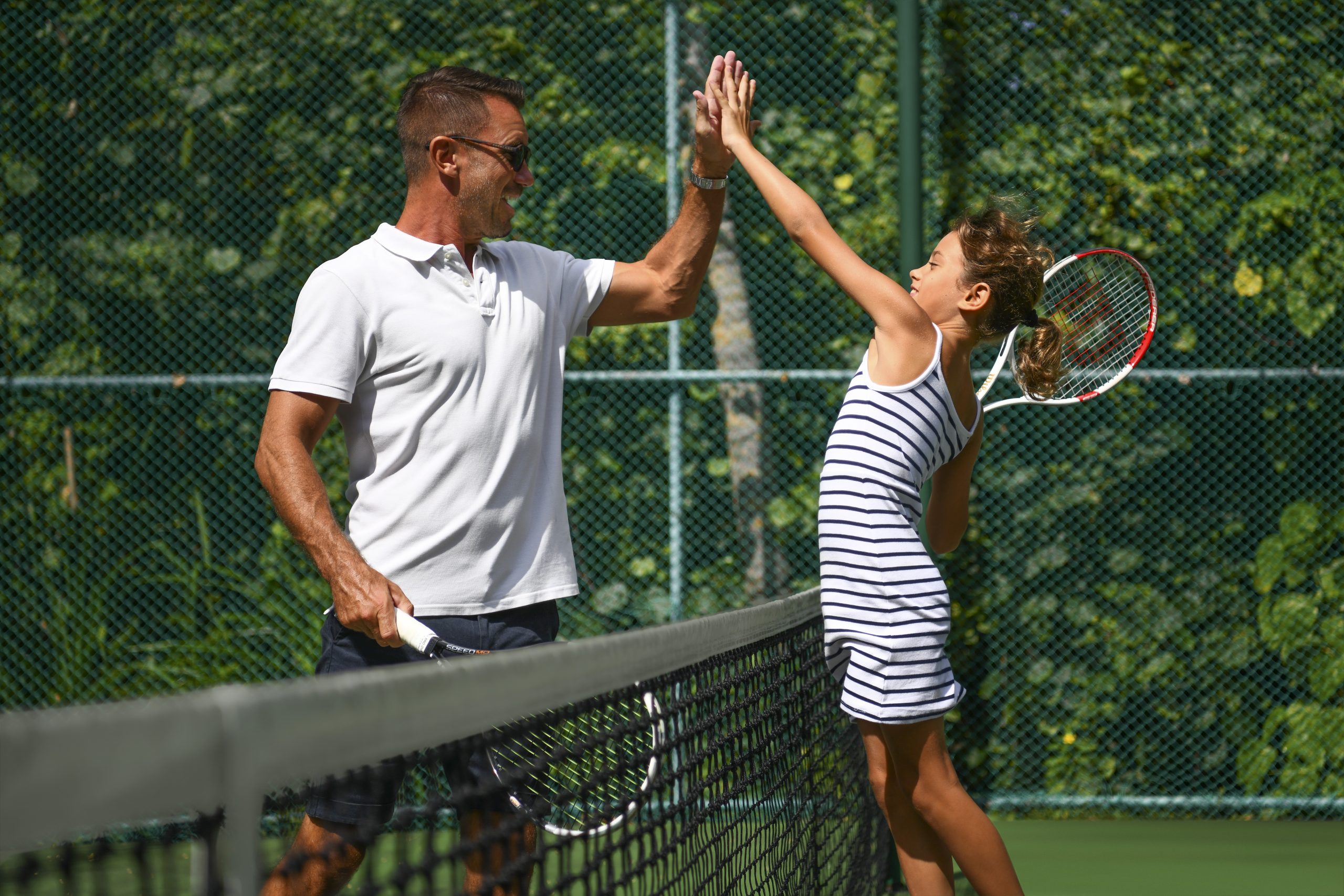
St. Regis Maldives Vommuli Resort has announced a partnership with LUX Tennis, strengthening the resort’s established tennis offering and introducing plans for a new padel court. The collaboration expands the resort’s active lifestyle programme, with a particular focus on families and multi-generational travel.
The St. Regis brand draws on the legacy of the Astor family, founders of the original St. Regis New York, whose Gilded Age lifestyle celebrated refined leisure and sporting pursuits. Tennis, in particular, became a symbol of elegance within the Astor social circle, reflecting a culture shaped by hospitality, recreation and sophistication. This heritage continues across the St. Regis portfolio today, where classic sports remain an integral part of the brand’s identity.
Set within the resort’s private island environment, the enhanced LUX Tennis programme is designed to elevate on-island tennis experiences for guests of all ages and skill levels. The programme features expert-led coaching, bespoke clinics and visiting residencies by internationally recognised professionals, offering guests opportunities to train, play and engage with elite talent in an accessible and inspiring setting.
Confirmed visiting professionals include Angelique Kerber, three-time Grand Slam champion and former world number one, who will visit from 29 to 31 March 2026, and Feliciano López, former Spanish champion with a career-high singles ranking of world number 12, scheduled from 16 to 17 May 2026.
The expanded tennis programme is designed to integrate seamlessly with island life, offering everything from relaxed family matches and junior-friendly coaching to more focused sessions for experienced players. Activities are structured to complement time spent at the beach, spa experiences and family dining.
The St. Regis Maldives Vommuli Resort features 77 beachfront and overwater villas, each with a private pool, alongside facilities such as the John Jacob Astor Estate, the largest overwater three-bedroom villa in the Maldives. Guests also have access to the award-winning Iridium Spa, six dining venues and a private yacht available for charter, reinforcing the resort’s positioning as a destination for both leisure and active pursuits.
-
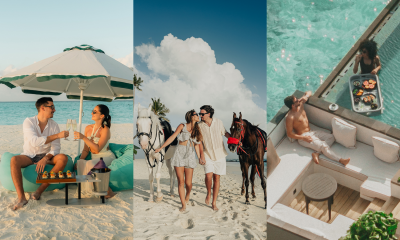
 Featured1 week ago
Featured1 week agoSun Siyam Resorts marks Valentine’s season with multi-resort celebrations
-
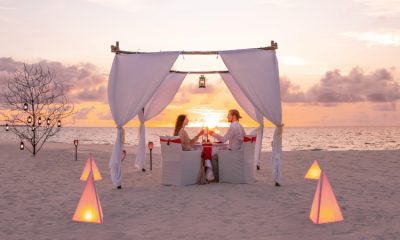
 Featured1 week ago
Featured1 week agoCoco Bodu Hithi and Coco Palm Dhuni Kolhu curate distinct Valentine’s escapes
-
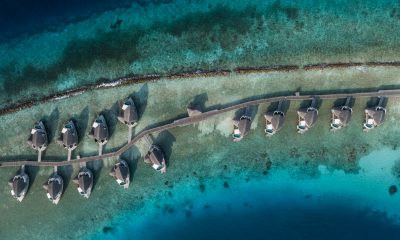
 News1 week ago
News1 week agoJW Marriott Maldives Resort & Spa invites families to celebrate Eid Al-Fitr in island luxury
-
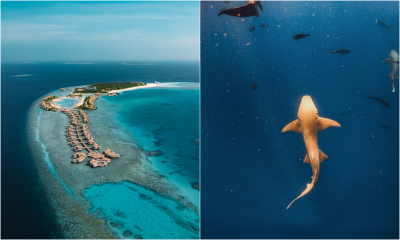
 Action1 week ago
Action1 week agoInterContinental Maldives Maamunagau Resort launches ‘Swim with Nurse Sharks’ experience
-
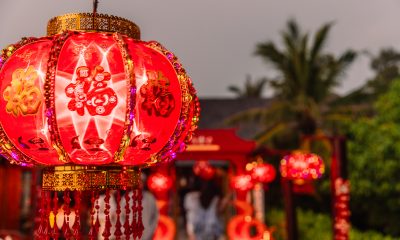
 Featured6 days ago
Featured6 days agoYear of the Horse celebrations across Sun Siyam’s Luxury, Privé and Lifestyle resorts
-

 Love7 days ago
Love7 days agoAzur rooftop at JEN Maldives sets stage for Valentine’s Day dining
-
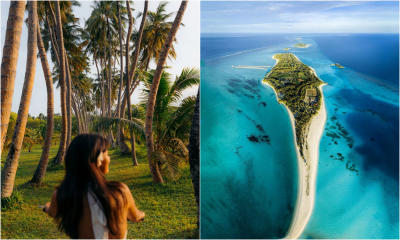
 Awards7 days ago
Awards7 days agoVilla Park secures second straight HolidayCheck Award
-
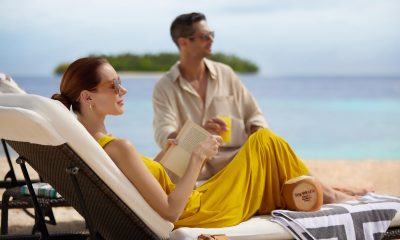
 Love1 week ago
Love1 week agoFrom beachfront dining to spa rituals: Valentine’s Day at The Westin Maldives











